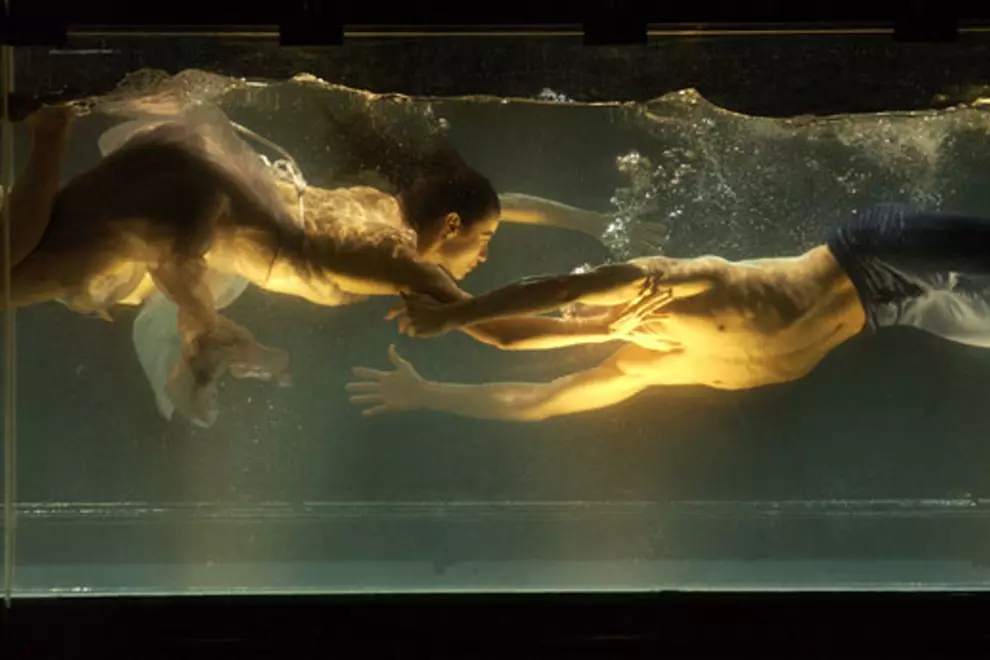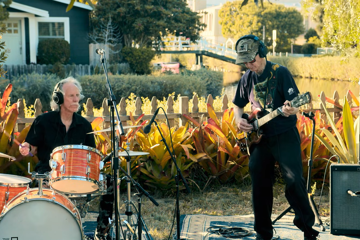Sasha Waltz's radical new production of Henry Purcell's Baroque opera premiered in Germany in 2005 at Staatsoper Unter den Linden (the Berlin State Opera). Waltz is at the top of her game and the dance-driven re-imaging – which features a cast of more than 50 dancers, singers, and musicians – was met with acclaim, and more than a few awed comments about the prologue, performed by dancers submerged in an enormous suspended tank of water. The score is to be performed live by the Akademie für Alte Musik Berlin conducted by Christopher Moulds, and the set is designed by architect Thomas Schenk.
For France-based Aurore Ugolin, a mezzo soprano who landed the lead, Dido, it's her first big job following graduation with masters from the Conservatoire National Supérieur de Musique et de Danse de Paris (superior not just because it's in the name, it's like France's Julliard).
“It was my first big role. During the summer I did one small role and then to have my first big role with a huge company like Sasha's was amazing. I was very lucky!” exclaims Ugolin modestly.
So large is the scope and scale of Waltz's production (it has been tipped as this year's Semele Walk, the collision of couture and opera by Vivenne Westwood and Ludger Engels that took top spot at the 2013 festival) that Ugolin is one of three Didos – Yael Schnell and Michal Mualem bring a more physical force of the lovelorn Queen of Carthage to life, while Ugolin provides the voice.
“It is richer this way, because it gives different sides of the character; all of the emotions of Dido are visible on the stage thanks to the three dimensions. The dancing provides another aspect of the character,” explains Ugolin. Likewise British baritone Reuben Willcox provides the voice for Aeneas, while Virgis Puodziunas dances as him.
Don't miss a beat with our FREE daily newsletter
Perhaps the most famous piece in Dido's repertoire throughout the tragic love opera is her final aria When I Am Laid In Earth, a tragic musing on fate that has come to be known as Dido's Lament. Ugolin now joins the ranks of a rather eclectic bunch of musicians who have put their mark on the song (among them Jeff Buckley and Ane Brune). As it turns out, she'd been working on it since before entering the Conservatoire in 2000.
“I had been working on the arias at the Conservatoire,” recalls Ugolin, “And I even presented to enter the Conservatoire of Paris the last aria, the lament, so I knew the piece already, I was already familiar. I've been lucky to develop it further to find a nice colour that also fit with Sasha's idea. I found the direction; she is not complaining, and it's not only sadness, Dido knows 'He has gone away, but now I have to face this destiny'. There is a lot of dignity, you know, she doesn't need to be sad or sorry for her destiny, she is going to face it.”
















